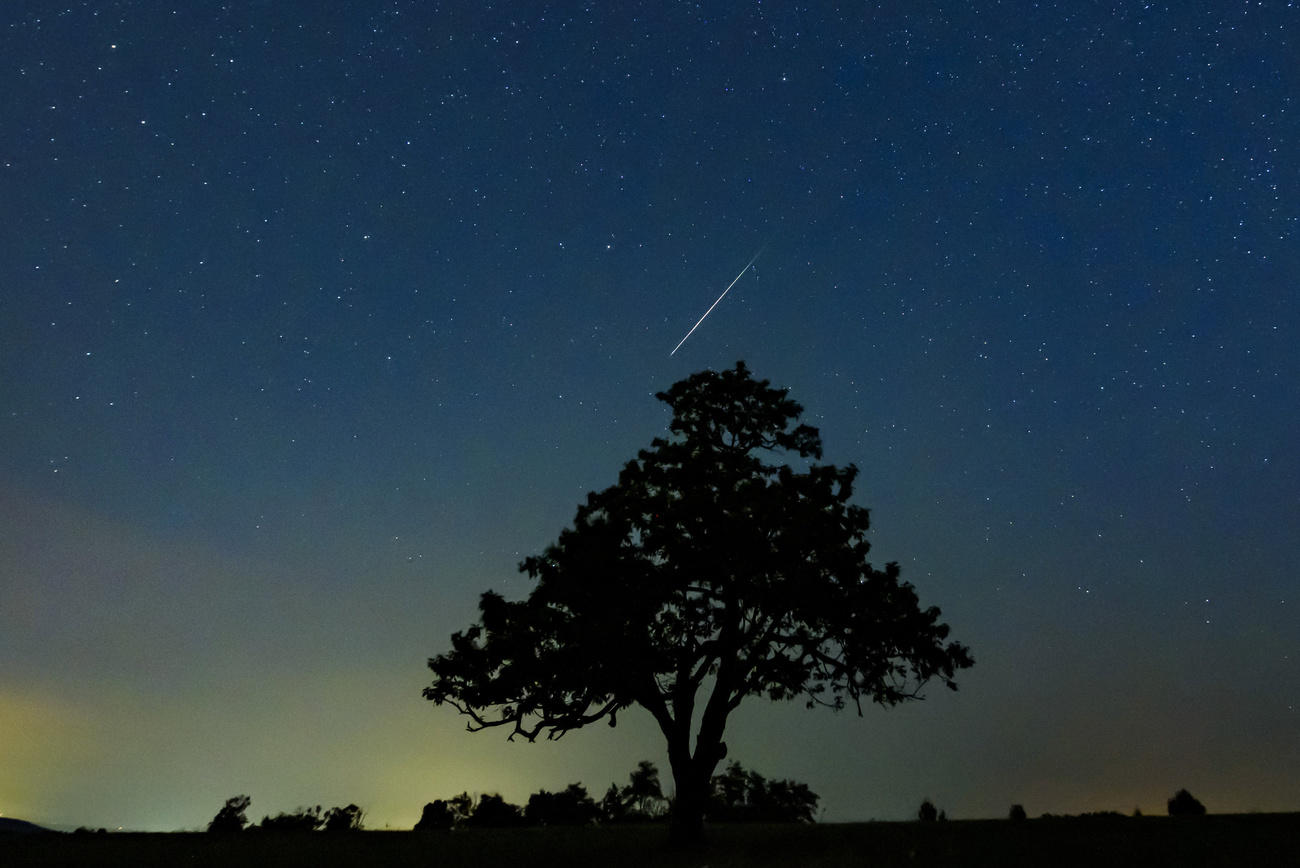
Swiss researcher finds spectacular meteorite in Antarctica

A rare meteorite weighing 7.6kg has been uncovered in Antarctica by a researcher from the Swiss federal technology institute ETH Zurich, together with scientists from Belgium and the US. They say the stone is of great importance for research.
“Finding a meteorite that’s larger than a fist is extraordinary,” said ETH Zurich earth scientist Maria Schönbächler, who was part of the Antarctica mission. Most meteorites found weigh only about 20 grams, she said.
A meteorite is a solid piece of debris that originates in outer space and survives its passage through the atmosphere to reach the surface of a planet or moon.
“Meteorites are used for planetary exploration,” Schönbächler said. This is because the number of meteorites available for research is extremely limited. In Switzerland, for example, only 11 meteorites have been found since 2018. “That’s why 7.6kg more to analyse is a lot,” she explained.
The research team searched for meteorites in Antarctica from December 2022 to mid-January 2023. Using satellite images and GPS coordinates, they explored the potential of several areas. “Antarctica is suitable for meteorite finds because the black stones are easily visible on the white snow,” Schönbächler said.
She said that due to the migration of the glaciers, new meteorites would continue to be uncovered in the million-year-old ice. In addition to the large meteorite, the researchers also found several smaller ones.
In Brussels
The meteorite was transported frozen to Brussels, where it is being thawed under controlled conditions at the Royal Belgian Institute of Natural Sciences. “There are metals in a meteorite that can rust quickly,” Schönbächler explained. To avoid this, the water has to be drained off immediately during thawing.
Once thawed, the meteorite is precisely dated, she said. “We assume it’s about four-and-a-half billion years old.” The meteorite will then be available for further scientific studies.

More
Meteorite contains oldest material on Earth

In compliance with the JTI standards
More: SWI swissinfo.ch certified by the Journalism Trust Initiative






























You can find an overview of ongoing debates with our journalists here . Please join us!
If you want to start a conversation about a topic raised in this article or want to report factual errors, email us at english@swissinfo.ch.